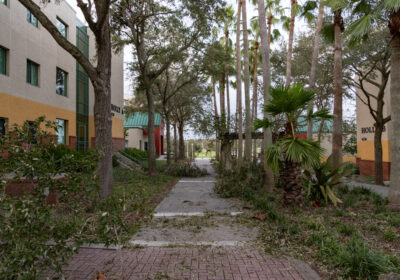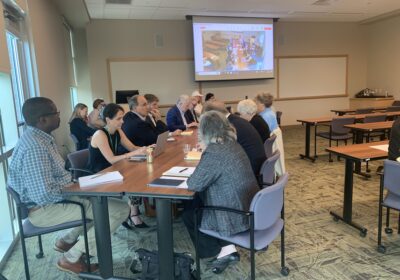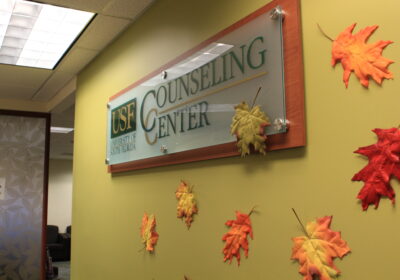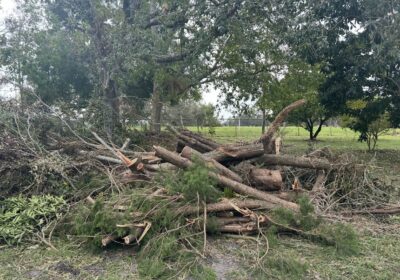Constricted by COVID-19: College of The Arts

This story is a part of a continuing series that highlights the changes deans and professors had to make in order to successfully transition from face-to-face instruction to remote online coursework as a result of the coronavirus outbreak.
School of Theatre and Dance student Brianna McVaugh was excited to close out this chapter of her collegiate life by playing Mariana in the USF production “Measure for Measure” at the end of April. However, as the severity of the COVID-19 outbreak began to rise, the entire cast was informed at their last rehearsal in March that all their hard work would be postponed until the fall semester.
The news hit McVaugh hard, considering she is set to graduate in May.
“It was a very hard and emotional night,” McVaugh said. “The majority of the cast was made up of graduating seniors like me who do not know if they will be able to come back in the fall to play the roles they were chosen for.”
The COVID-19 outbreak has been a harsh reality for many College of The Arts students, including McVaugh, as the college normally carries out over 300 art showcases, performances and events this time of year.
The College of The Arts include the School of Architecture and Community Design, School of Art and Art History, School of Theatre and Dance, and the School of Music.
The 1,200 students who make up the college have had to transition from art studios, practice rooms and stage rehearsals to Canvas assignments and Microsoft Teams video calls within the span of a couple of weeks.
Transitioning many of these students was a challenge considering most of them left their instruments and art supplies on campus over spring break because the reality of online classes was not yet known.
However, Assistant Dean of the College of The Arts Karen Frank said special arrangements and appointments were made for students to come one by one.
“[School of Architecture and Community Design] students were all in the middle of working on projects,” Frank said. “So we had to have all those students schedule safe times for them to come to pick up their work so they could continue their studies.”
For some of the School of Music students, this was an obstacle considering the size of some of their instruments — especially for piano majors.
But, the department was able to come up with a solution.
“The School of Music went out and bought 13 digital keyboards, and we went out to the students so they can at least finish their coursework and their keyboarding skills,” Frank said.
But this was not the case for Zachary McKinon, a second-year horn performance major.
McKinon said he has to take a certain number of piano classes to meet his major requirements, but because he is not a piano major, he said he did not receive a keyboard.
“A good portion of students, me included, don’t have access to a piano, so we have to use a phone app,” McKinon said. “I think we can all see how fundamentally problematic that is.”
McKinon said his history and music theory classes have been running smoothly, but he has been struggling with his wind ensemble and orchestra classes because he is used to practicing in a group setting.
“Both of these major ensembles have been reduced to listening assignments,” McKinon said. “To a nonmusician, that’s probably not a big deal. But for me, not only am I missing out on important group playing experience, but I’m also paying for a class that is now completely useless to me.
“Of course this is a situation no one was prepared for, so I don’t want to be too critical, but this is my money being spent on classes that have been reduced to activities [I] did in high school band class when there was a substitute for the day.”
Sarah Sadie Lehmker, who teaches the dance technique courses, said most dance students have been handling the transition well. Although they are used to in-person lessons, they’ve adapted to daily video calls.
“The three ballet faculty [members] are leading daily ballet barres at 11 a.m. via [Microsoft Teams],” Lehmker said. “For modern dance, the five faculty [members] are offering classes via [Microsoft Teams] to maintain their movement acquisition skills.”
If a student has difficulty with their internet connection, limited space to work with, time conflicts or are living with multiple people, Associate Dance Professor Andrew Carroll said they have the option to watch ballet barre classes online in lieu of USF dance classes.
For Ashley Paytas, a second-year architecture major, she said doing her ballet class in her bedroom has been a “huge inconvenience.”
“We normally have a pianist and it really is a great studio vibe, but for online they stream ballet class,” Paytas said. “It’s super inconvenient because at my home we don’t have anywhere to really do it, plus you don’t really get as much feedback and it’s just horrible, really.”
Associate Professor of Printmaking and Drawing Bradlee Shanks said School of Art and Art History students are completing digital drawing and design instead of the hands-on approach most students are used to.
Even though the transition to online classes has been difficult for Paytas, she is making the best of the situation.
“For architecture, it’s really hard to adjust but as that’s my major — I’m more dedicated to making it work,” Paytas said. “Since it’s an intense program, [professors and students] don’t really have time to slow down.”
For School of Theatre and Dance students, McVaugh said performing in a home environment has forced both professors and students to be creative when it comes to coursework.
“We have to find spaces where we can record parts of scenes from plays and musicals and try to edit the videos and audio recordings together in order to make a full scene with our partner/group,” McVaugh said.
Even though the transition has been difficult, McVaugh is still able to look at the positives.
“I haven’t had to fight for a parking spot in the mornings, so I haven’t been late to a class yet,” McVaugh joked.
Frank said she understands this is a hard time for students so the departments have been holding virtual events such as “brown bag lunches” through video calls every Wednesday to keep students connected.
As universities around the globe cope with canceled performances and events, this reality is present in the performing arts world and in the Tampa Bay area.
In Tampa and St. Pete, The Museum of Fine Arts, Tampa Museum of Art, Tampa Bay History Center, Florida Holocaust Museum and St. Petersburg Museum of History are temporarily closed, according to the Tampa Bay Times.
Many theaters and tours around the nation have decided to cancel or postpone their performances for later dates in the year to be in accordance with the guidelines set by the Centers for Disease Control and Prevention (CDC).
The Tampa Theatre will be closed at least until the end of April and the David A. Straz Jr. Center for the Performing Arts already has canceled or postponed nearly all events this month, according to the Tampa Bay Times.
In New York — well known for its performing arts — Gov. Andrew Cuomo extended the suspension of Broadway performances until June 7, according to an NPR article written April 8.
Given the uncertainty of the world right now, McVaugh is not sure what the next chapter of her life will hold post-graduation, but she hopes she is able to return to USF in the fall to carry out her role in “Measure for Measure.”
“It all pretty much depends on what life looks like at that time,” McVaugh said. “If I have a paying job I would, of course, have to put that first as we would not receive any pay for the postponed show.
“This is the reality for theaters all around the globe right now, and I hope that when the dust settles, theater as a community will be able to come back stronger than ever.”






